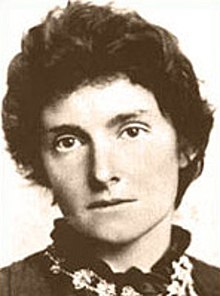From The Portuguese
Edith Nesbit 1858 (Kennington, Surrey ) – 1924 (New Romney, Kent)
I
When I lived in the village of youth
There were lilies in all the orchards,
Flowers in the orange-gardens
For brides to wear in their hair.
It was always sunshine and summer,
Roses at every lattice,
Dreams in the eyes of maidens,
Love in the eyes of men.
When I lived in the village of youth
The doors, all the doors, stood open;
We went in and out of them laughing,
Laughing and calling each other
To shew each other our fairings,
The new shawl, the new comb, the new fan,
The new rose, the new lover.
Now I live in the town of age
Where are no orchards, no gardens.
Here, too, all the doors stand open,
But no one goes in or goes out.
We sit alone by the hearthstone
Where memories lie like ashes
Upon a hearth that is cold;
And they from the village of youth
Run by our doorsteps laughing,
Calling, to shew each other
The new shawl, the new comb, the new fan,
The new rose, the new lover.
Once we had all these things -
We kept them from the old people,
And now the young people have them
And will not shew them to us -
To us who are old and have nothing
But the white, still, heaped-up ashes
On the hearth where the fire went out
A very long time ago.
II
I had a mistress; I loved her.
She left me with memories bitter,
Corroding, eating my heart
As the acid eats into the steel
Etching the portrait triumphant.
Intolerable, indelible,
Never to be effaced.
A wife was mine to my heart,
Beautiful flower of my garden,
Lily I worshipped by day,
Scented rose of my nights.
Now the night wind sighing
Blows white rose petals only
Over the bed where she sleeps
Dreamless alone.
I had a son; I loved him.
Mother of God, bear witness
How all my manhood loved him
As thy womanhood loved thy Son!
When he was grown to his manhood
He crucified my heart,
And even as it hung bleeding
He laughed with his bold companions,
Mocked and turned away
With laughter into the night.
Those three I loved and lost;
But there was one who loved me
With all the fire of her heart.
Mine was the sacred altar
Where she burnt her life for my worship.
She was my slave, my servant;
Mine all she had, all she was,
All she could suffer, could be.
That was the love of my life,
I did not say, 'She loves me';
I was so used to her love
I never asked its name,
Till, feeling the wind blow cold
Where all the doors were left open,
And seeing a fireless hearth
And the garden deserted and weed-grown
That once was full of flowers for me,
I said, 'What has changed? What is it
That has made all the clocks stop?'
Thus I asked and they answered:
'It is thy mother who is dead.'
And now I am alone.
My son, too, some day will stand
Here, where I stand and weep.
He too will weep, knowing too late
The love that wrapped round his life.
Dear God spare him this:
Let him never know how I loved him,
For he was always weak.
He could not endure as I can.
Mother, my dear, ask God
To grant me this, for my son!
Font size:
Submitted on May 13, 2011
Modified on March 05, 2023
- 2:51 min read
- 106 Views
Quick analysis:
| Scheme | Abcxdecf AghdbID xcgjfkl ahdID xmxehkjx ddnxomj ngpxhqxr sesgxnhcpx xqndxoxqtqxxlgxrqxxxx rxxxtxsxixg |
|---|---|
| Closest metre | Iambic tetrameter |
| Characters | 2,786 |
| Words | 574 |
| Stanzas | 10 |
| Stanza Lengths | 8, 7, 7, 5, 8, 7, 8, 10, 21, 11 |
Translation
Find a translation for this poem in other languages:
Select another language:
- - Select -
- 简体中文 (Chinese - Simplified)
- 繁體中文 (Chinese - Traditional)
- Español (Spanish)
- Esperanto (Esperanto)
- 日本語 (Japanese)
- Português (Portuguese)
- Deutsch (German)
- العربية (Arabic)
- Français (French)
- Русский (Russian)
- ಕನ್ನಡ (Kannada)
- 한국어 (Korean)
- עברית (Hebrew)
- Gaeilge (Irish)
- Українська (Ukrainian)
- اردو (Urdu)
- Magyar (Hungarian)
- मानक हिन्दी (Hindi)
- Indonesia (Indonesian)
- Italiano (Italian)
- தமிழ் (Tamil)
- Türkçe (Turkish)
- తెలుగు (Telugu)
- ภาษาไทย (Thai)
- Tiếng Việt (Vietnamese)
- Čeština (Czech)
- Polski (Polish)
- Bahasa Indonesia (Indonesian)
- Românește (Romanian)
- Nederlands (Dutch)
- Ελληνικά (Greek)
- Latinum (Latin)
- Svenska (Swedish)
- Dansk (Danish)
- Suomi (Finnish)
- فارسی (Persian)
- ייִדיש (Yiddish)
- հայերեն (Armenian)
- Norsk (Norwegian)
- English (English)
Citation
Use the citation below to add this poem to your bibliography:
Style:MLAChicagoAPA
"From The Portuguese" Poetry.com. STANDS4 LLC, 2024. Web. 19 Apr. 2024. <https://www.poetry.com/poem/8828/from-the-portuguese>.



Discuss the poem From The Portuguese with the community...
Report Comment
We're doing our best to make sure our content is useful, accurate and safe.
If by any chance you spot an inappropriate comment while navigating through our website please use this form to let us know, and we'll take care of it shortly.
Attachment
You need to be logged in to favorite.
Log In